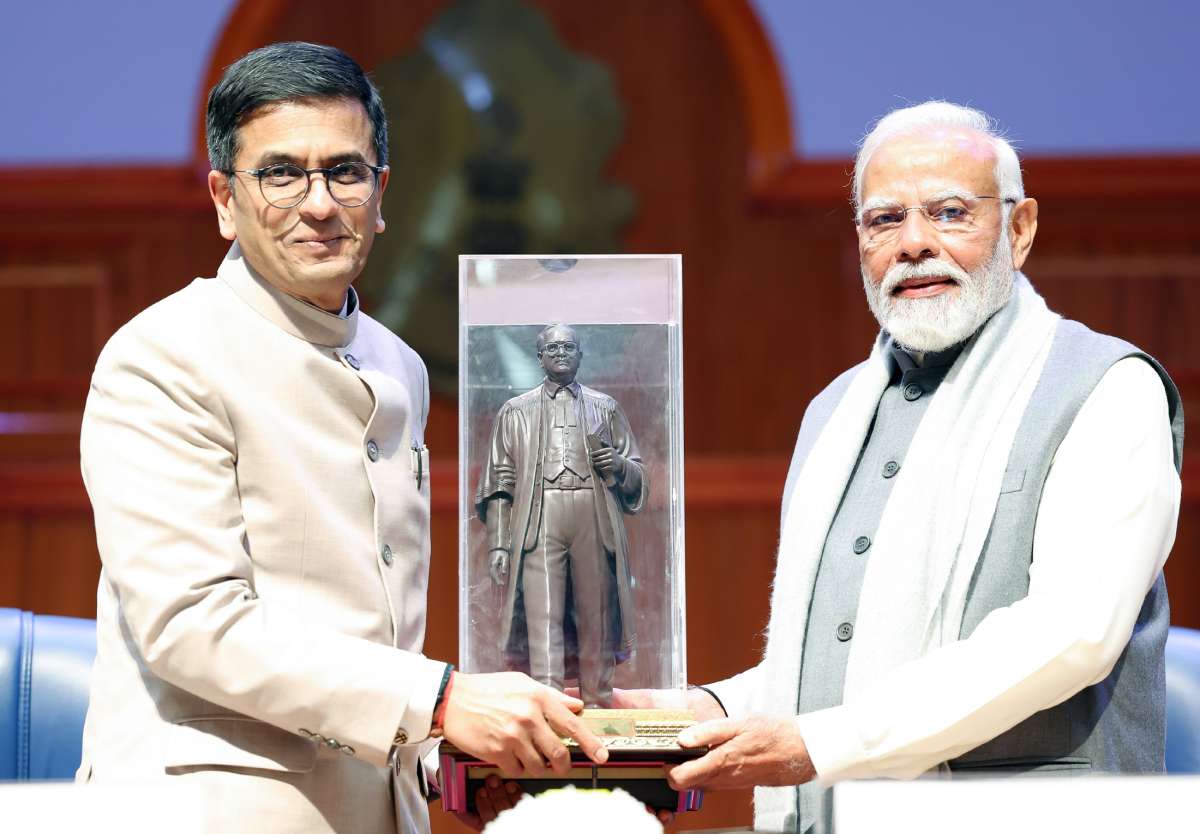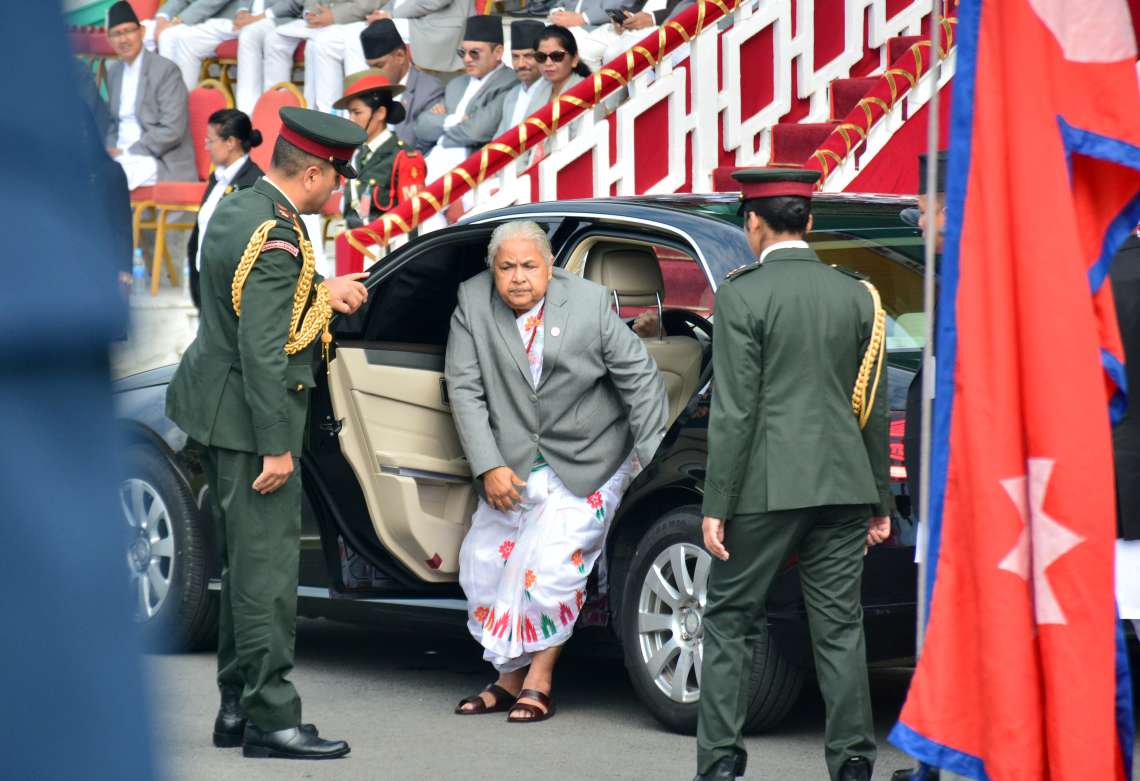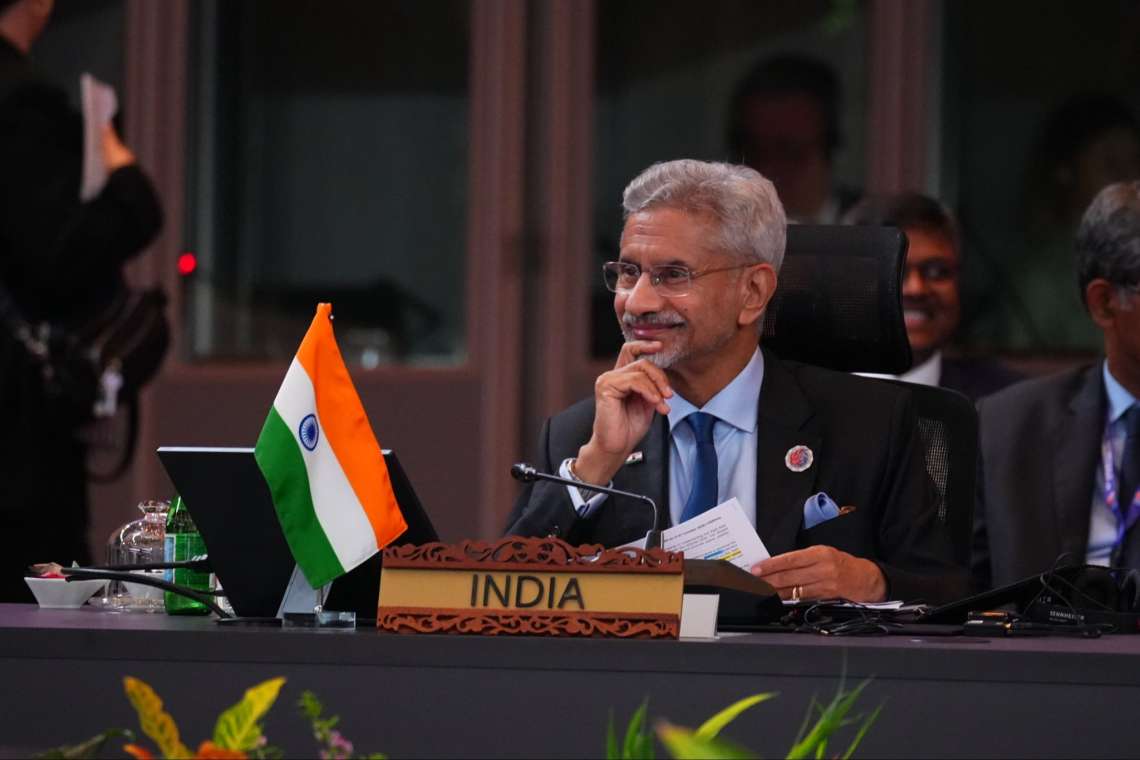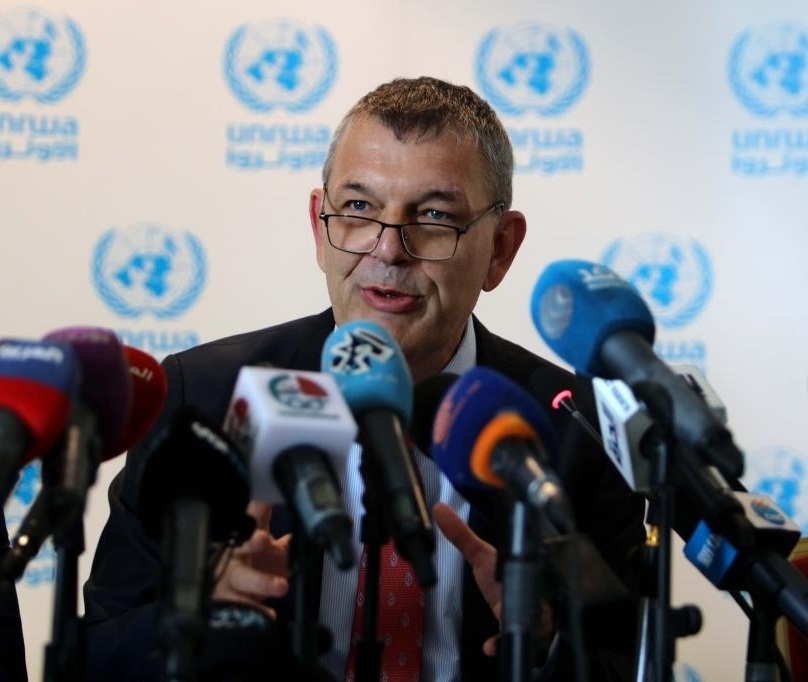PM Modi said country’s legal, policing, and investigating system entered a new era after the replacement of three colonial-era criminal laws….reports Asian Lite News
Prime Minister Narendra Modi on Sunday said that a strong judicial system is the cornerstone of a developed India.
Participating in the Diamond Jubilee celebrations of the Supreme Court, the Prime Minister said that due to the replacement of three colonial-era criminal laws country’s legal, policing, and investigating system entered a new era.
“By repealing the colonial-era criminal laws, the government has introduced the system of Bharatiya Nagrik Surksha Sanhita, Bharatiya Nyay Sanhita and Bharatiya Sakshya Adhiniyam. Due to these changes, our legal, policing, and investigating system has entered a new era. This is a huge change. It is very important that there should be a smooth transition from hundreds of years old laws to new laws. For this, training and capacity-building work of government employees has already been started. I would request the Supreme Court to also come forward for such capacity building of all stakeholders,” PM Modi said, adding that a strong judicial system is the main foundation of developed India.
The Bharatiya Nyaya Sanhita, Nagarik Suraksha Sanhita and Bharatiya Sakshya Adhiniyam replaced the centuries-old Indian Penal Code (IPC), the Code of Criminal Procedure (CrPC) and Indian Evidence Act respectively. The three laws were passed by the Parliament in the recently concluded Winter Session and received President Droupadi Murmu’s assent on December 25, last year.
The Prime Minister said that today the eyes of the whole world are on India and the world’s trust in India is increasing. “Today it is important for India to take advantage of every opportunity,” he said at an event celebrating 75 years of the Supreme Court here in the national capital.
“Today India’s priority is ease of living, ease of doing business, ease of travel, ease of communication and ease of justice,” he said.
“Indian citizens are entitled to easy access to justice. And the Supreme Court acts as the primary channel for this. The entire judicial system depends on the directions, guidance given by the Supreme Court,” he added.
PM Modi said that over Rs 7000 crore has been distributed by the Centre to improve the physical infrastructures in the courts and that the government has allocated Rs 800 crore for Supreme Court complex expansion.
He said that be it freedom of expression, personal liberty, or social justice, the apex court has continuously strengthened India’s ‘vibrant democracy’.
“The makers of the Constitution had dreamed of an independent India with the principles of freedom, equality and justice. The Supreme Court has made continuous efforts to protect these principles. Be it freedom of expression, personal liberty, social justice, the top court has continuously strengthened India’s vibrant democracy,” PM Modi said.
“In this journey of more than seven decades, the Supreme Court has taken many important decisions on individual rights and freedom of speech. These decisions have given a new direction to the socio-political milieu of the country,” he added.
“Today, every institution, organization, executive and legislature of India is working keeping in mind the goals of the next 25 years. With this thinking, big reforms are also taking place in the country today. India’s economic policies today will form the basis of tomorrow’s bright India. The laws being made in India today will further strengthen the bright India of tomorrow,” the Prime Minister said further. (ANI)
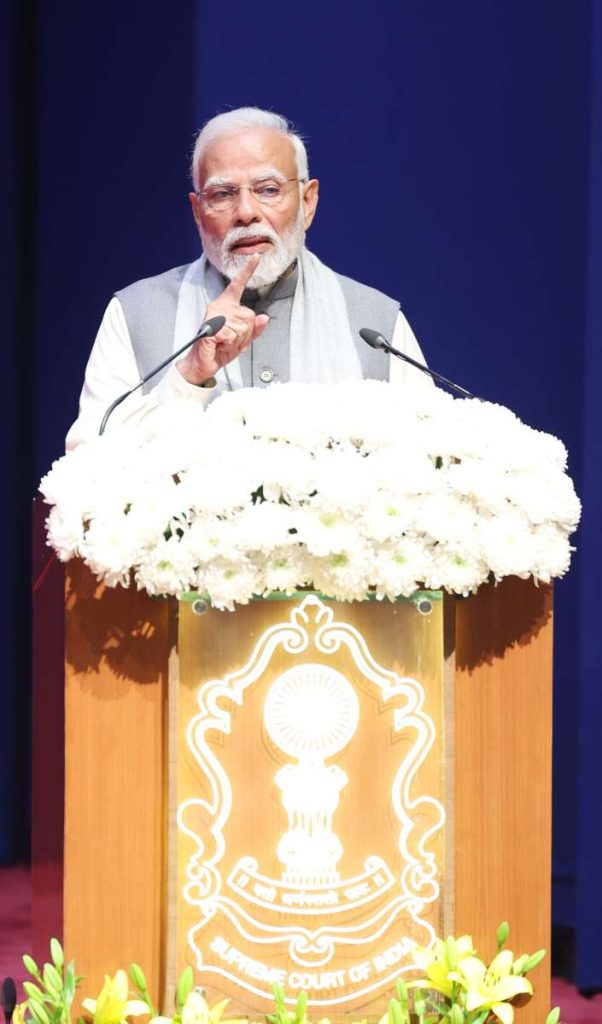
Jan Vishwas Bill eases judicial load: PM
Addressing the Jan Vishwas Bill as a step toward reducing unnecessary burdens on the judicial system, Prime Minister Narendra Modi praised the Supreme Court for strengthening India’s vibrant democracy.
He credited the court for pivotal verdicts on individual rights and freedom of speech, shaping the socio-political landscape.
Modi affirmed that today’s economic policies and laws in India would be the foundation for a brighter future, emphasizing the need to capitalize on global opportunities.
The Prime Minister also announced the government’s approval of Rs 800 crore for the expansion of the Supreme Court building, reinforcing the commitment to bolstering the country’s legal infrastructure.
ALSO READ: UN Warns of Gaza Shutdown Without Funding


